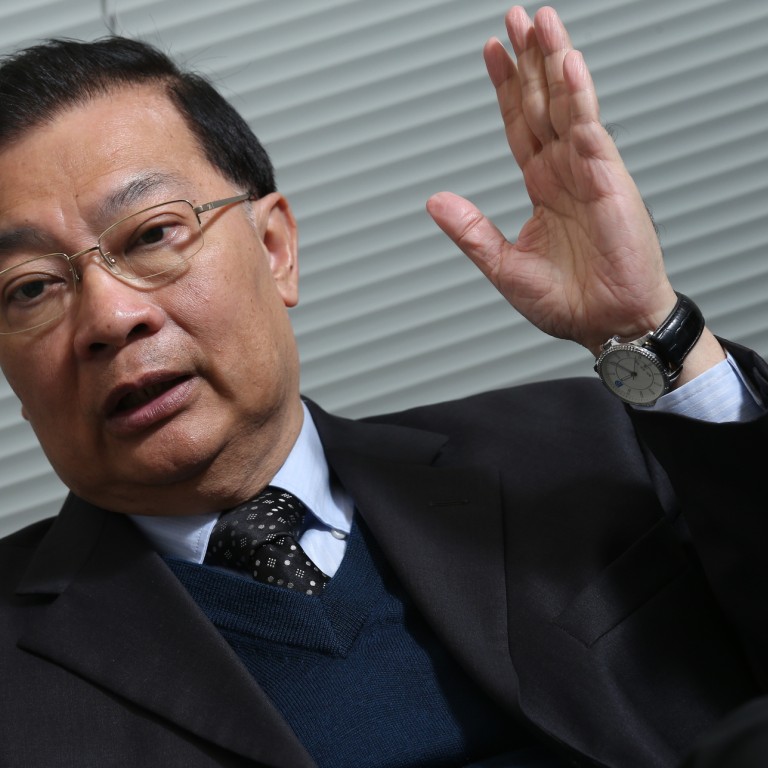
Reform could be shelved until 2020 if Hong Kong doesn’t pass bill, former DAB chairman warns
The leader of Hong Kong’s largest pro-establishment party expects that the government would not start another bid for political reform during the remainder of its term if its current proposal is rejected.
The leader of Hong Kong’s largest pro-establishment party expects that the government would not start another bid for political reform during the remainder of its term if its current proposal is rejected.
Tam Yiu-chung, former chairman of the Democratic Alliance for the Betterment and Progress of Hong Kong, believes Leung Chun-ying’s administration would not make another attempt to change the way the city elects its leader, given its term ends in 2017.
Tam told DBC radio today he expected the earliest possible time to start a new discussion would be 2020.
In the lead up to that, the city will continue to see arguments on constitutional reform, Tam said.
“This will not be a good thing for Hong Kong. Much resources and time have been spent already and we will still be entangled in the same issue,” he said.
A latest opinion survey showed Hongkongers are split on whether to support the government’s proposal, which will be tabled to the Legislative Council next week for debate and then a vote.
The latest round of the survey, conducted between Tuesday and Saturday last week by the University of Hong Kong, Chinese University and Polytechnic University, shows that opposition to the package increased by 1.2 percentage points to 42.8 per cent, the highest since polling began on April 23.

That figure was the same as the proportion expressing support, which dropped 0.9 of a percentage point, compared with the last poll, conducted between June 1 and Friday.
Democratic Party dissident Tik Chi-yuen, speaking on the same radio show, continued his criticism of his party. He said the Democrats should be held responsible for the current deadlock.
“It shows the Democratic Party’s strategy on fighting for democracy has failed,” Tik said. “If the proposal is rejected, who will pay the price? It is Hongkongers.”
Speaking on the same show, Executive Council member Cheng Yiu-tong said there will not be any last-minute concession from Beijing on the proposal.
“Frankly the central government has concretely and clearly stated that there won’t be [any concession]. There won’t be,” said Cheng, who is also a delegate to the National People’s Congress.
“Up to this moment, some veteran pan-democrats still assert that President Xi [Jinping] will make some concession at the last-second. Honestly I suggest they really give up,” he said.

Cheng said it was up to the pan-democrats to decide whether Hong Kong could move forward on democracy. If the proposal is eventually voted down, Cheng believed that the trust between the central government and the pan-democrats would fall apart completely.
He said in that case, the central government would see pan-democrats as “transparent” and their well-being would not be taken into account in its Hong Kong-related policy in future.
Cheng also cast doubts on the results of the joint university opinion poll. He said the survey failed to give a full picture of how many Hongkongers support the passage of the bill by only asking respondents one question, that is, whether they support the government package.
He said this approach effectively excluded the views of people who personally do not support the proposal for some reason but want Legco to endorse it.
